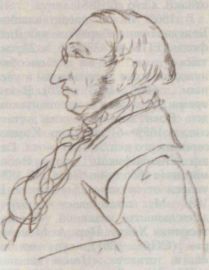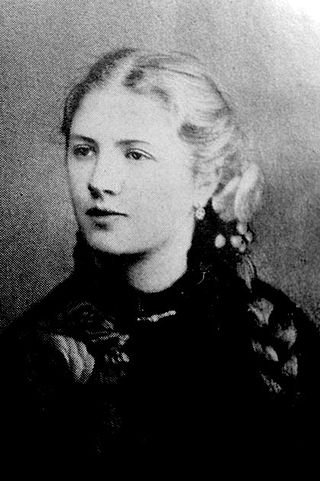
Vasily Alekseyevich Sleptsov, , was a Russian writer, playwright, journalist and social reformer.

Konstantin Mikhailovich Fofanov was a Russian poet.

Avdotya Yakovlevna Panaeva, née Bryanskaya,, was a Russian novelist, short story writer, memoirist and literary salon holder. She published much of her work under the pseudonym V. Stanitsky.

Viktor Petrovich Burenin was a Russian literary and theatre critic, publicist, novelist, dramatist, translator and satirical poet notorious for his confrontational articles and satirical poems, mostly targeting leftist writers. He was the author of several popular plays, novels and opera librettos.

Nikolai Stepanovich Kurochkin was a Russian poet, editor, translator and essayist. Writing under numerous pseudonyms, Kurochkin published both satirical poems and serious essays mostly in Otechestvennye Zapiski, of which since 1868 he was a major contributor, and Iskra, the magazine he co-edited. In 1865-1867 he edited the magazine Knizhny Vestnik. Vasily and Vladimir Kurochkins were his brothers.

Count Grigory Alexandrovich Kushelev-Bezborodko was a Russian writer, publisher and philanthropist.

Evgeny Vasilyevich Anichkov was a Russian literary critic and historian who specialised in the Slavic folklore and mythology, as well as their relation to and use in the Russian literature.

Ivan Fyodorovich Gorbunov was a Russian writer and stage actor, considered to be a forefather for the "literary theatre" subgenre in his county.

Apollon Apollonovich Korinfsky was a Russian poet, journalist, writer, translator and memoirist.

Alexey Fyodorovich Ivanov was a Russian writer and poet, better known under his pen name Ivanov-Classic (Иванов-Классик).

Nikolai Alexandrovich Melgunov was a Russian writer, publicist, translator from German and French, and music critic, described as one of the most prolific and diverse authors of his time.

Russkaya Rech was a Russian quarterly political and literary magazine published in Saint Petersburg in 1879–1882 by the poet, novelist and playwright Alexander Navrotsky, who was also its editor-in-chief.

Alexander Alexandrrovich Navrotsky was a Russian writer, poet and playwright, known also under his pen name N. A. Vrotsky. His best-known poem, "The Stenka Razin Cliff", set to music by himself, became popular among Russian revolutionaries in the late 19th-early 20th century and is now considered part of Russian musical folklore.

Viktor Viktorovich Bilibin was a Russian writer and playwright, one of the leading Russian humourists and satirists of the late 19th century, who used the pen name I. Grek. His best-known stories were collected in the books Love and Laughter, Humour and Fantasy and Humorous Patterns. After Nikolai Leykin's death he became the editor-in-chief of Oskolki (1906—1908).

Vasily Ivanovich Vodovozov was a Saint-Petersburg-born Russian children's writer, poet, pedagogue, educational theorist and translator. Elizaveta Vodovozova (1884–1923), also a children's writer, was his wife.

Gavriil Nikolayevich Zhulev was a Russian satirical poet, dramatist and actor.

Evgeny Kirillovich Rapp was a Russian writer, journalist and editor.

Lydia Alexeyevna Avilova was a Russian writer and memoirist, best known for her book A.P. Chekhov in My Life, published posthumously in 1947.

Elizaveta Nikolayevna Vodovozova was a Russian children's writer, educational theorist and memoirist, the wife of Vasily Vodovozov.

Nadezhda Nikolayevna Bromley was a Russian and Soviet actress, theatre director, poet, short story writer and playwright. In 1932, she was honored as the Meritorious Artist of RSFSR.




















